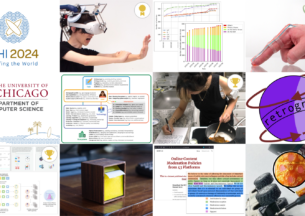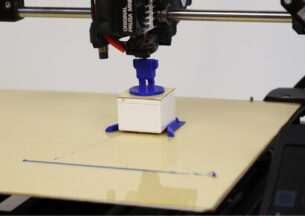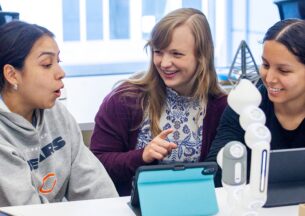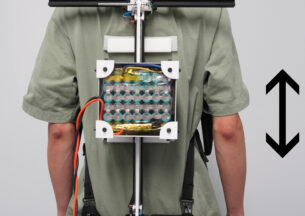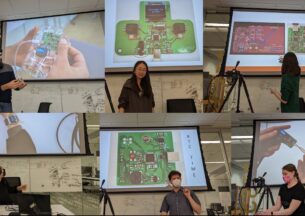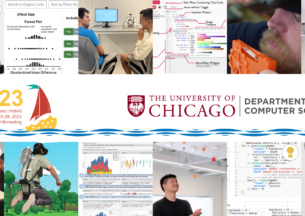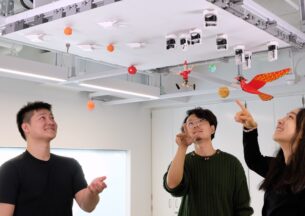Alexandra Ion (ETH Zurich) - Metamaterial Devices
Metamaterial Devices
3D printers allow for arranging matter freely in space, thereby enabling the fabrication of arbitrary shapes with complex internal structures. Such structures, typically based on 3D cell grids, are known as metamaterials. Metamaterials have been shown to incorporate extreme properties such as change in volume, programmable shock-absorbing qualities or locally varying elasticity.
Traditionally, metamaterials were understood as materials—I think of them as *devices*.
I argue that viewing metamaterials as devices allows us to push the boundaries of metamaterials further. In my research, I propose unifying material and device and develop “metamaterial devices”. To instantiate these new types of devices, I investigated three aspects of such metamaterial devices:
(1) materials that process analog inputs, (2) materials that process digital signals, and (3) materials that output information to the user by changing their outside textures.
I believe that future materials will be able to sense their environment, process that information and produce output or reconfigure themselves—all performed without electronics, but within the material structure itself. Such materials can be fabricated from one block of a single material; thus, they require no assembly and miniaturize well. The intricate cell-structure that enables such materials is very challenging to design as all cells need to move in concert, which demands efficient computational design tools. By solving the challenges around design tools, I argue that such intelligent materials will push the boundaries of e.g., medical implants, soft robotics, aeronautics, or energy harvesting materials.
Host: Blase Ur

Alexandra Ion
Alexandra Ion is a postdoctoral researcher at ETH Zurich, working with Prof. Olga Sorkine-Hornung on computational design tools for complex geometry. She completed her PhD with Prof. Patrick Baudisch at the Hasso Plattner Institute in Germany.
Alex’ work is published at top-tier HCI venues (ACM CHI & UIST). Her work received a Best paper honorable mention awards at ACM UIST and CHI, and was invited for exhibitions, including a permanent exhibition at the Ars Electronica Center in Austria.




